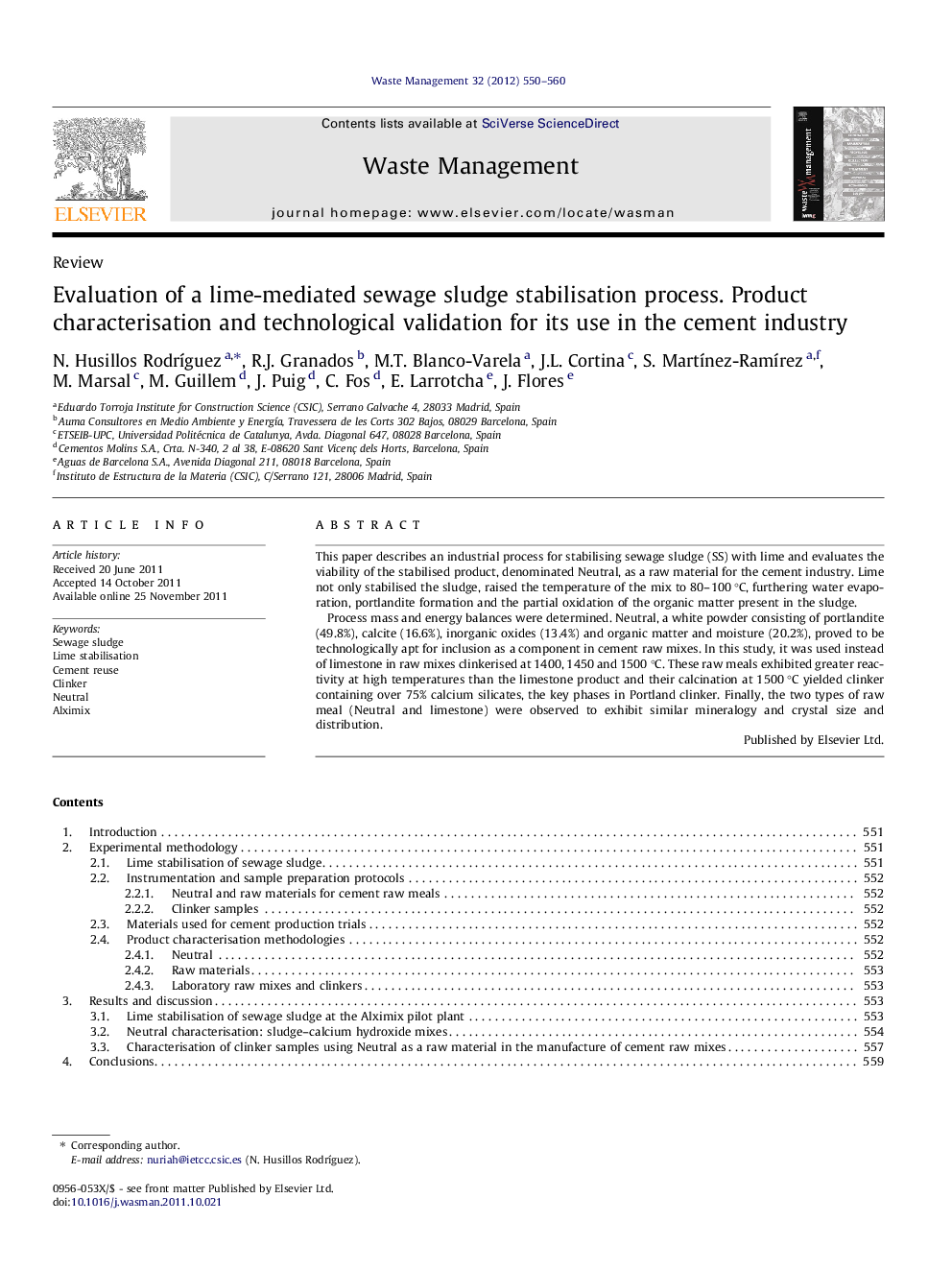| Article ID | Journal | Published Year | Pages | File Type |
|---|---|---|---|---|
| 4472020 | Waste Management | 2012 | 11 Pages |
This paper describes an industrial process for stabilising sewage sludge (SS) with lime and evaluates the viability of the stabilised product, denominated Neutral, as a raw material for the cement industry. Lime not only stabilised the sludge, raised the temperature of the mix to 80–100 °C, furthering water evaporation, portlandite formation and the partial oxidation of the organic matter present in the sludge.Process mass and energy balances were determined. Neutral, a white powder consisting of portlandite (49.8%), calcite (16.6%), inorganic oxides (13.4%) and organic matter and moisture (20.2%), proved to be technologically apt for inclusion as a component in cement raw mixes. In this study, it was used instead of limestone in raw mixes clinkerised at 1400, 1450 and 1500 °C. These raw meals exhibited greater reactivity at high temperatures than the limestone product and their calcination at 1500 °C yielded clinker containing over 75% calcium silicates, the key phases in Portland clinker. Finally, the two types of raw meal (Neutral and limestone) were observed to exhibit similar mineralogy and crystal size and distribution.
► A new process of sewage sludge management using CaO as dryer is presented. ► The chemical energy in the reagents is enough for the moisture to evaporate. ► The process is more energy-efficient than others, in which fossil fuels are used. ► The obtained product is highly suitable for use as a prime material in cement raw meals. ► The mixes manufactured with it exhibited higher reactivity than the reference mix.
